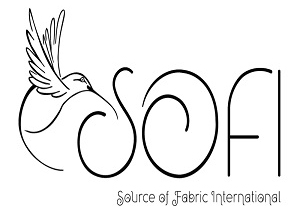Today’s fabric industry is undergoing a remarkable transformation, driven by the increasing emphasis on sustainable practices. At SOFI, we understand the importance of adopting eco-friendly methods in fabric production services. This article delves into the substantial impact of sustainable practices, offering insights and actionable steps for businesses seeking to embrace sustainability.
Understanding Sustainable Practices in Fabric Production Services
Sustainable practices in fabric production services involve methods that minimize environmental impact and promote the efficient use of resources. These practices include reducing water consumption, utilizing eco-friendly dyes, recycling waste materials, and adopting energy-efficient technologies. Implementing such measures not only benefits the environment but also enhances the overall quality and marketability of fabrics.
Reducing Water Consumption in Fabric Production
Water is a critical resource in fabric production, particularly in processes such as dyeing and finishing. Traditional fabric production methods are notorious for their high water usage. However, sustainable practices prioritize reducing water consumption through innovative techniques.
One such technique is waterless dyeing, which uses air or other mediums instead of water to dye fabrics. This method drastically cuts down on water usage and minimizes the risk of water pollution. At SOFI, we have incorporated water-saving technologies to ensure that our production processes are environmentally responsible.
Utilizing Eco-Friendly Dyes and Chemicals
Conventional dyes and chemicals used in fabric production can be harmful to the environment and human health. Sustainable practices advocate for the use of eco-friendly dyes and chemicals that are biodegradable and non-toxic.
Natural dyes derived from plants, minerals, and insects offer a sustainable alternative to synthetic dyes. These dyes not only reduce environmental impact but also produce vibrant and unique color variations. SOFI’s commitment to sustainability includes the use of eco-friendly dyes that meet international environmental standards.
Recycling and Reusing Waste Materials
Fabric production generates a significant amount of waste, including fabric scraps, trimmings, and defective products. Sustainable practices emphasize recycling and reusing these waste materials to reduce landfill waste and conserve resources.
By implementing a robust recycling program, SOFI ensures that waste materials are repurposed into new products or recycled into raw materials for future production. This approach not only reduces waste but also lowers production costs and enhances the sustainability of our operations.
Adopting Energy-Efficient Technologies
Energy consumption is a major concern in fabric production, with processes such as spinning, weaving, and dyeing requiring substantial amounts of energy. Sustainable practices focus on adopting energy-efficient technologies to reduce carbon emissions and energy costs.
At SOFI, we have invested in state-of-the-art machinery and equipment that optimize energy use. Additionally, we utilize renewable energy sources such as solar and wind power to further reduce our carbon footprint. These initiatives contribute to a more sustainable and cost-effective production process.
Enhancing Fabric Quality and Durability
Sustainable practices not only benefit the environment but also enhance the quality and durability of fabrics. Eco-friendly production methods result in fabrics that are free from harmful chemicals and possess superior qualities such as softness, strength, and longevity.
By prioritizing sustainability, SOFI produces high-quality fabrics that meet the growing demand for eco-friendly products. Our customers can trust that our fabrics are beautiful and safe for both people and the planet.
Meeting Consumer Demand for Sustainable Products
The demand for sustainable products is on the rise, with consumers becoming increasingly aware of the environmental impact of their purchases. Businesses that adopt sustainable practices in fabric production services can gain a competitive edge by meeting this demand.
SOFI’s commitment to sustainability resonates with eco-conscious consumers who seek out products that align with their values. By choosing sustainable fabrics, our customers contribute to a greener future while enjoying products that are ethically produced. Read More About HOW TO FIND FABRIC-SOURCING COMPANIES
Conclusion: Embracing Sustainability for a Better Future
The impact of sustainable practices in fabric production services is profound, offering numerous benefits for the environment, businesses, and consumers. At SOFI, we are dedicated to implementing and promoting sustainable methods that enhance the efficiency and eco-friendliness of our operations. By adopting these practices, fabric production services can significantly reduce their environmental impact while enhancing the quality and marketability of their products. At SOFI, we are committed to leading the way in sustainable fabric production, ensuring a brighter future for our industry and the planet.


